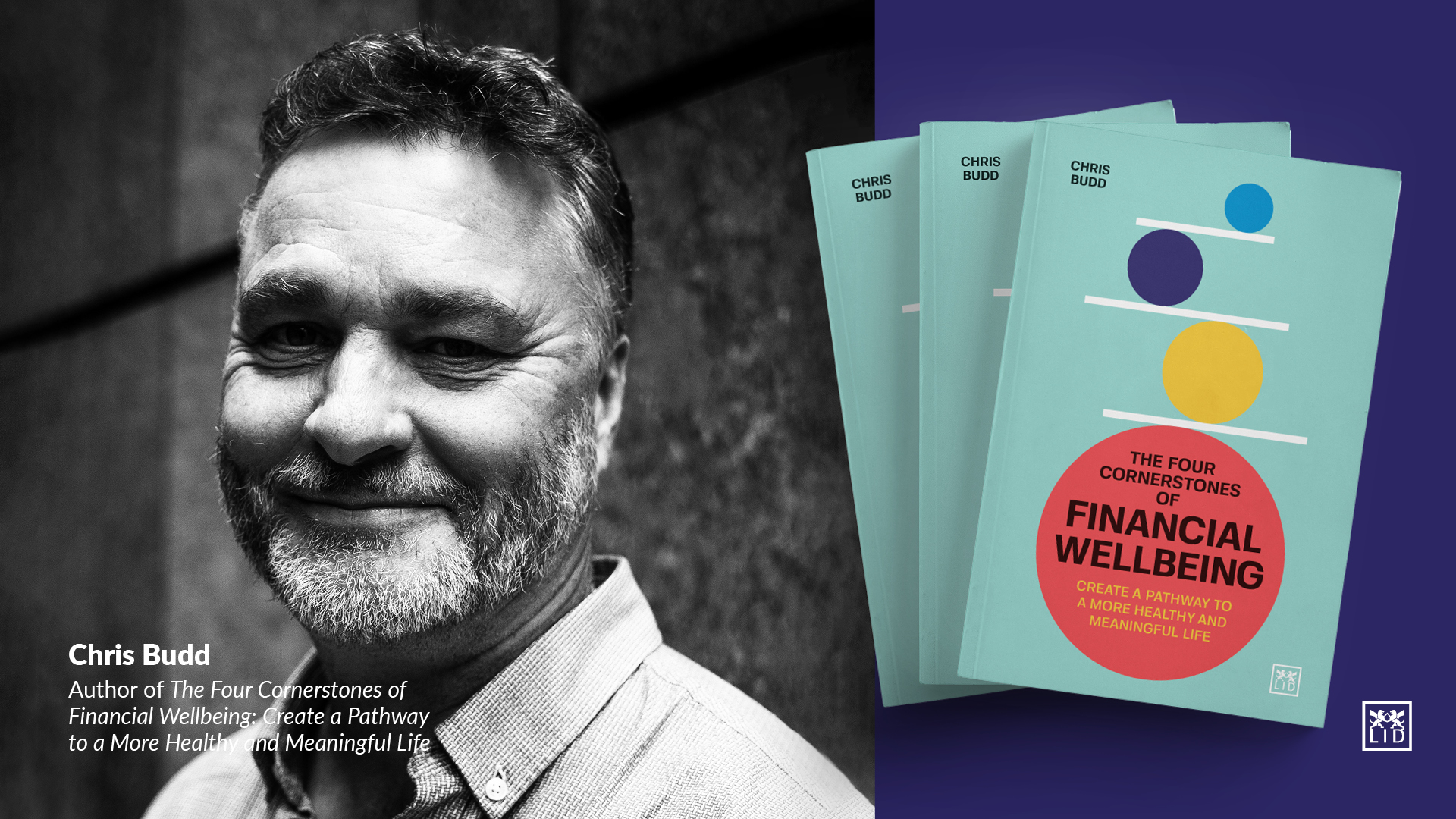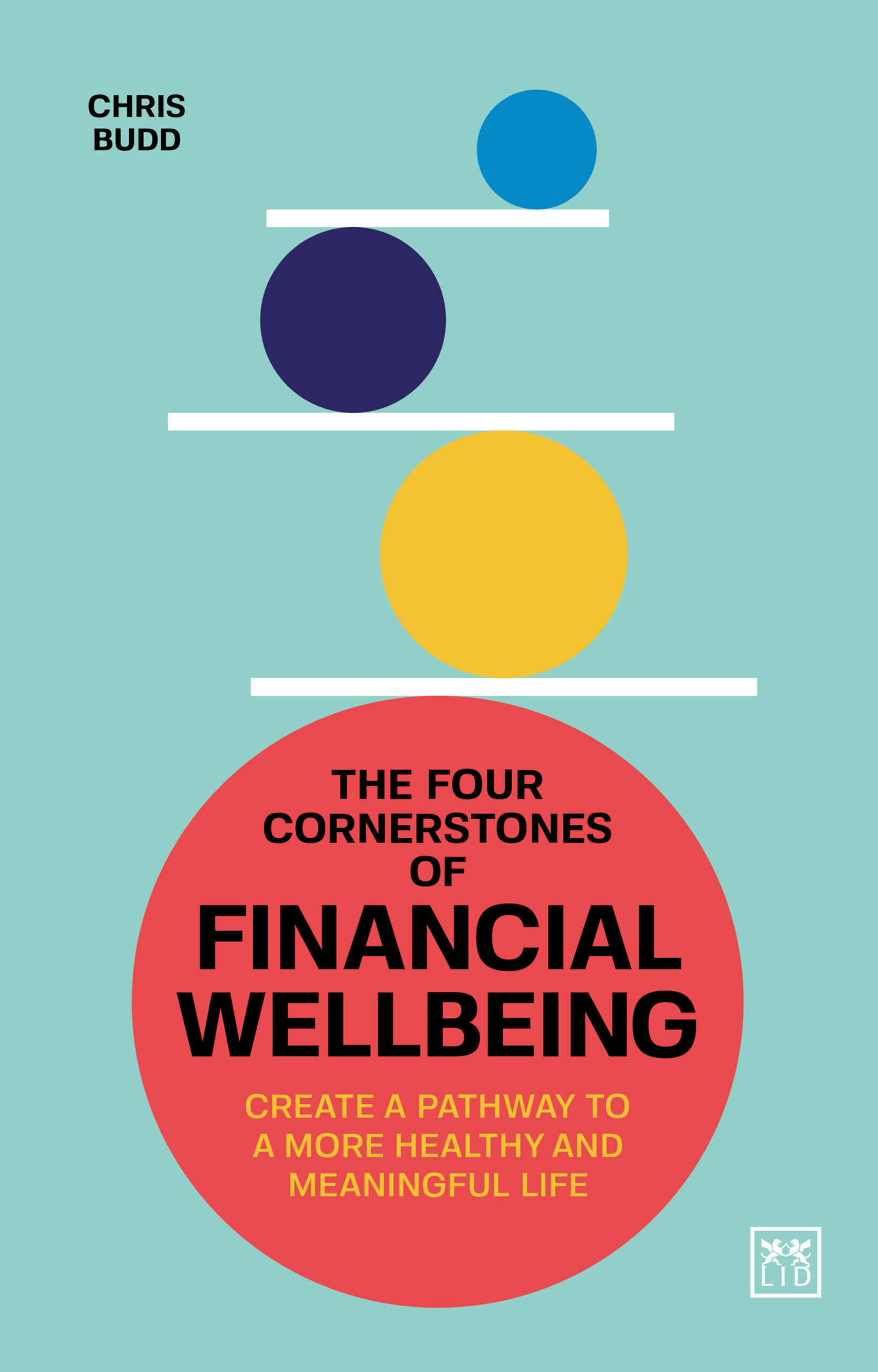|
How To Stop Spending Your Way To Happiness with Chris Budd
How To Stop Spending Your Way To Happiness

By Guest Contributor Chris Budd
Author of The Four Cornerstones of Financial Wellbeing, Chris Budd, reveals why buying stuff won’t make us happy in the long run and how to stop this bad habit.
At the risk of stating the obvious, advertising exists in order to persuade us to buy things.
This is worth reiterating because advertising can so often be mistaken for entertainment. Sometimes advertising campaigns even purport to be doing good.
There is a particular human trait that advertising preys on. Understanding this self-limiting instinct can go a long way to having a better relationship with money. We humans just love to buy stuff.
Retail Therapy
The phrase ‘retail therapy’ has come to mean the idea that we receive joy from buying things. That consumerism equals wellbeing.
The term was actually first used in that decade of consumerism, the 1980s. The Chicago Tribune published an article about this new craze, summarising with the following pithy line: “We’ve become a nation measuring out our lives in shopping bags and nursing our psychic ills through retail therapy.”
This use of the term frames consumerism as being like a drug. Not as the sort of drug that it is now often seen as, a medicine to make us feel better. This retail therapy is a narcotic, a drug that gives a short term hit often followed by guilt, or withdrawal symptoms.
We are, in fact, all financial wellbeing junkies.
Why do we do favour short-term hits of happiness over our long-term wellbeing? There is a psychological explanation for this.
Financial Wellbeing Junkies
Set point theory is a psychological idea which suggests that we reach adult live with a set level of wellbeing. You probably know someone who always lights up a room when they enter it. You also probably know someone who just seems happy being miserable.
This long-term level of wellbeing doesn’t tend to change. Instead, we move around it. Something might make us happy, and we move above our normal level of wellbeing. In time, however, that wears off and we resort back down to our set point.
Maybe something makes us sad, and we dip below our normal level. As we get used to that thing and the sadness passes, so we revert to our set point.
When we move above our set point, this is a nice feeling. We like being happy, so are unlikely to take action to change this. When we dip below, however, we feel sad. This is not nice, and so we want to return back to our set point as quickly as possible. We then often do the easiest thing available to give us a short-term hit of happiness: we buy stuff.
In this way, we are all financial wellbeing junkies, trapped in a cycle of buying hits of happiness to keep us up to our set point level.
Getting Off The Treadmill
Understanding that there is a problem is the first step. Believing that retail therapy is a good thing can be what we might call a self-limiting belief.
Of course, there is nothing wrong with buying something nice to feel good. However, if this means getting into debt or failing to set aside money for emergencies or for the future, then it is a belief that leads to poor financial outcomes.
The second step, therefore, is to find different ways of behaving that will change our habits.
There are several types of solutions. The first is to delay. If you have an impulse to buy something, wait a week. If you still think you want it and can afford it, then maybe it’s ok to buy it. But very often you’ll find that the impulse has gone.
Automation is your friend here. Set up regular payments to savings accounts, which means the money isn’t there to spend in the first place.
Understand what really brings joy into our lives. Having experiences creates memories which gives much longer lasting wellbeing. Give tickets for events as presents. Give your time. Kindness and community give wellbeing. These are all longer lasting wellbeing than the hit from buying something.
Next time you see an advert and feel the urge to buy something, why not make a habit of sending a friend a message that you are thinking of them. Maybe do a quick burst of exercise to create the happy chemicals in your body.
In these ways you can stop being a financial wellbeing junkie.
ABOUT THE AUTHOR
Suggested Reading
 The Four Cornerstones of Financial Wellbeing presents an understanding of our finances that is defined not in terms of wealth or status, but by your happiness. Through a four-cornerstone approach, it provides practical advice on how to create a financial wellbeing plan that will help you to focus away from simply accumulating wealth, and instead focus on enjoying your life. The author leads the reader into understanding their own definition of success, what brings happiness and wellbeing, and the distractions and barriers that stops us from achieving wellbeing. Based on this insight into what we want from life, we can create a pathway to use money to increase our wellbeing and have a more healthy, fulfilling and enjoyable life.
The Four Cornerstones of Financial Wellbeing presents an understanding of our finances that is defined not in terms of wealth or status, but by your happiness. Through a four-cornerstone approach, it provides practical advice on how to create a financial wellbeing plan that will help you to focus away from simply accumulating wealth, and instead focus on enjoying your life. The author leads the reader into understanding their own definition of success, what brings happiness and wellbeing, and the distractions and barriers that stops us from achieving wellbeing. Based on this insight into what we want from life, we can create a pathway to use money to increase our wellbeing and have a more healthy, fulfilling and enjoyable life.

 Chris Budd is the founder of the Initiative for Financial Wellbeing and is the Chairman of Ovation Finance. He is the author of The Financial Wellbeing Book (part of LID’s Concise Advice series)and The Four Cornerstones of Financial Wellbeing (LID) and is based in the UK.
Chris Budd is the founder of the Initiative for Financial Wellbeing and is the Chairman of Ovation Finance. He is the author of The Financial Wellbeing Book (part of LID’s Concise Advice series)and The Four Cornerstones of Financial Wellbeing (LID) and is based in the UK.